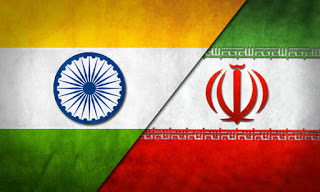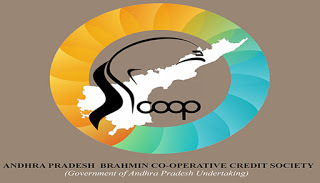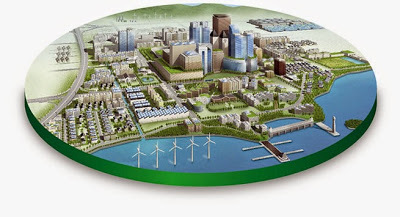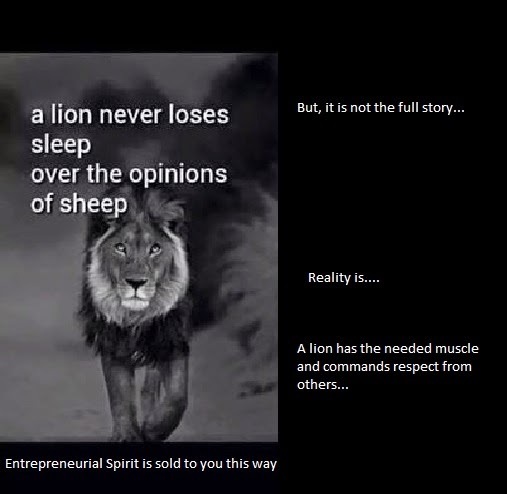Abhijith Jayanthi's Blog, page 2
October 28, 2017
Iran – A Rising Opportunity

Ever heard of a country with too many highly educated people? More than two-thirds of the 80 million population are under the age of 35, with literacy rate stands above 93% and 0.1% of the population living below the poverty line of 1.9$ per day. Rightfully so, when the country was cut-off from the World – it made the right choice, to invest in education: 20% of government spending and 5% of GDP goes to education. It bears a striking similarity to Lee Kuan Yew Master Plan of investing in education, one of his conscious decisions that engineered Singapore’s economic miracle.
With 10 percent of the world's proven oil reserves and 15 percent of its gas reserves, Iran remains a dormant energy superpower, largely due to isolation from global markets. With the lifting of trade sanctions in January 2016, few financial institutions are extending lines of credit, and FDI inflow has been timid, but not great as expected.
Since the mid-1990s, Iran has increased its economic cooperation with other developing countries in "south-south integration" including Syria, India, China, South Africa, Cuba and Venezuela. Iran's trade with India passed $13 billion in 2007, an 80% increase within a year – but there is a significant trade imbalance, with India accounting for 9.9% of Iranian exports but with little to negligible imports into Iran. China on the other hand, maintains a healthy trade balance, with significant imports and exports between the two countries.
With aviation and transportation sectors badly needing rejig and many other sectors remaining outdated in terms of technology or capabilities – Iran presents a rising opportunity. China has been quick to realize the potential, and has connected Iran by Train link last year – starting in China’s eastern province of Zhejiang, the train link passes through Kazakhstan and Turkmenistan, into Iran. This will see the exchange of goods and services potentially reaching the threshold of 600$ Billion.
India, is not far behind – helping Iran develop the strategic port of Chabahar. The location plays a vital role and is of great significance, merely 72 KM away from Pakistan’s Chinese funded deep sea port at Gwadar, Chabahar port not only provides access to Central Asia (with a marine distance of 353 nautical miles to Dubai and 843 nautical miles to Mumbai) but also is the only Iranian port with direct access to the Indian Ocean. The highly congested Bandar Abbas port is not a deep water port and cannot handle the 250,000 ton ocean-going cargo ships. At present, such ships dock in the United Arab Emirates (UAE) and the cargo is transferred to smaller 100,000 ton ships for onward shipment to Iran. This makes Iran dependent on the UAE for shipments and represents a loss of revenue, not to mention making UAE the biggest trading partner of Iran by volumes. Unlike Bandar Abbas, Chabahar has the ability to handle standard cargo ships.
Indian Government and Indian businesses can do much more – the majority of discourse around Indo-Iran relations revolves around Chabahar, and does not indicate the true economic potential. Iran has encouraging business opportunities in energy, infrastructure, healthcare, retail, airports and aviation, mining and water sectors. A program similar to UK’s trade department – which offers financial cover to companies interested to do business in Iran, would help Indian businesses set up shop in Iran. In July, French oil giant Total committed $1 billion for developing the country’s largest oil field, and car manufacturer Peugeot is stepping up its local presence, and produce over 200,000 cars in Iran. India should encourage automotive industries to explore marketing tie-ups with local entities to expand their market footprint.
There are challenges too, corruption is still a major hurdle, with Transparency International ranking Iran at 131 out of 175. After Modi’s visit, it did not take Tehran long to dissociate from the idea of exclusive Indian engagement in Chabahar Port, and voice out invitations to Pakistan and China to participate. Iranians are thorough when it comes to negotiations and in striking the right balance – one of the main reasons, they are able to hold onto their own, despite adverse international relations. While the moderate Rouhani and his government, though powerful, seem eager to open up to the world, internal political challenges exist. Khamanei and the very powerful Islamic Revolutionary Guard Corps that he controls, also have large interests in the country’s economy.
There are reasons India should look beyond Oil, Saffron or Carpets from Iran and see the true potential. At present, India is not fully cognizant of Iran’s strategic importance. From the last decades of the 19th century to the mid-20th century, India and Iran have a shared history, from Parsis long standing contributions to Indian Economy and Culture; to one of three Kendriya Vidyalaya Schools outside India, in Tehran, running since 1930s – there is enough cultural understanding and people-to-people contact since ages. It is time India should change from remaining marginally engaged based on needs to an evolved partnership with Iran – India needs to rethink about its approach with Iran
- Abhijith Jayanthi

Published on October 28, 2017 11:24
October 25, 2017
Delhi Durbar: Hegemony of Suitable Truth & Convenient Praise

Greatness is not what reason promises – it is achieved by wandering into the unknown to discover; sometimes with no one left to clap by our side, only for others to realize value of the discovery much later – sometimes after discoverer sinks into the oblivion.
During the summer of 1990, PV Rao, an under-celebrated veteran of Indian polity, was preparing to retire – when he had to step into the top job in the country. Consequences of terrible economic management by Rajiv Gandhi, meant Rao had the ugly job to tackle the balance of payments crisis. Gulf war and low credibility of Indian leadership then, gave little support to Mr. Rao.
With amazing tact – PV Rao not only completed a full term but also ushered in a new era for Indian economy. Yet, pseudo liberal brigade of Indian polity chose to highlight Dr. M Singh, the then union finance minister for the turnaround. It is a sad but just indictment, of our pseudo liberal Indian polity for robbing the real victor and celebrating their convenient choice.
Today, we see a reverse thematic criticism: Prime Minister Modi alone, with limited to no role of others within the government or otherwise, is responsible to celebrate their nervous glee. Modi’s leadership meant hard but necessary choices – what India needs to do to be a thriving economy.
Delhi Durbar wants to sing the tune of suitable truth and convenient praise. Reforms will see costs borne upfront, with rewards coming in later. With more than necessary intervention of government through the decades of mis-rule, Indian economy remains inchoate. It is like an overgrown start-up – not willing to learn about its weaknesses. We as a nation, have too many grey haired (wo)men advising us. It is time, we stop listening to the noise, and act. To lessen the dependency of economy on government – in PM Modi’s own words: Government has no business to be in business; the fragility of our economy to government interventions should be arrested. Dependencies on external stimulus from the government or otherwise, is a clear sign of bad governance, where politics trumps economics. Government’s role should be regulatory, to facilitate necessary checks and balances – GST is one step in that direction.
We as a nation survived centuries of loot and plunder with patience – which continued for decades well after gaining independence; it is but important we begin to see the bigger picture, and not let go our perseverance. Quoting Muhammad Ali, “It isn't the mountains ahead to climb that wear you out; it's the pebble in your shoe.” – Prime Minister Modi will have to consider, necessary interventions to address the short run spill-over effects on SMEs and creation of jobs due to GST implementation.
To quote from the famous Apple Ad: To ones who see things differently, while some may see them as the crazy ones, we see genius. Because, people who are crazy enough to think that they can change the world, are the ones who do – Prime Minister Modi, is the first politician in our history, to undertake reforms by choice, and not because of compulsion. It is time we let go our fancy to celebrate ancestry, and start celebrating the genius of passionate wo(men). They are invariably pushing us forward, and are changing our world for good.
- Abhijith Jayanthi

Published on October 25, 2017 09:24
February 16, 2017
Renascence: Concept of Credit Society

In the World of today, many a Credit Society pays lip service to innovation, but to truly unlock the power of being a Credit Society, there is a greater need to influence the status quo, of yesterday – be a disruptive first. I believe this notion should be deeply embedded in our operations, and our strategies to grow.
Rethinking the concept of Credit Society, should go beyond imagining what a Credit Society should be and how it should work. Our method should not be to impose change or dream up new gimmicks. Rather, it is to get ourselves to rethink what we are expected to do, by applying processes more akin to starting up, every single day. It is not just about new products, but rethinking how old products work and redesigning them with members’ aspirations-to-be-met approach.
The impetus for innovation does not come from a desire to jump start, what other Credit Societies are pursuing, but rather springs from a fear that what we know today, as traditional functions of a Credit Society, could be disrupted as fundamentally as other industries – and we ought to be the disrupter. It is not about inventing the latest product offering – although there is a role for that. It is about relevance and application; agility and losing the fear of failure; and, ultimately, changing our culture.
I see Credit Societies having an extended value rather than just being providers of basic credit facilities or running a traditional product. We need to broaden our reach, from leveraging our strengths: It is a drastically different way of viewing the world from a traditional mentality that demands everything be done in-house. When we earn a rupee, we have to drive co-operative growth, of our partners and our members. Thus, we become an ecosystem and a platform, to create and innovate, where we have lots of people from both within and outside our system, trying to make our Credit Society successful.
Together, we innovate and thrive, thus influence productive disruption.
- Abhijith Jayanthi CEO @ ABC-CS

Published on February 16, 2017 11:04
August 20, 2016
What are the real drivers of Micro-Credit? Why Micro-Credit is here to stay?
 The focus of micro-credit for the bottom of the pyramid segment in rural areas is increasingly becoming an area of focus as development policy-makers work towards improving the lifestyles of rural poor. Previous research has had a keen focus on the impacts of financial services to business outcomes, leaving behind other equally vital aspects of development. In addition, very little of this research has focused on socio-economic and sustainability outcomes in rural areas. It is clearly evident that the bottom of the pyramid (BOP) segment lack financial access which limits their abilities to invest and increase their income. Research done on access to financial services by the poor has shown that access to financial services by this segment can be an instrument towards poverty alleviation. This is because, access to financial services increases people’s choices which play an important role in empowering the poor. Micro-lending services allow poor people to move into a more proactive mode that enables them to get protection against risks ahead of time and opens up new opportunities. The benefits of micro-credit investments revolve around empowerment of the poor as it provides economic freedom and the ability to make choices. At ABC-CS, we have carried out a study, using non-randomized controlled trials, to investigate and evaluate the impacts of access to financial services on income and poverty levels by those people in the BOP segment especially in the rural areas. Although our focus was on the impacts of financial access, we also investigated other aspects like prior business experience, gender and group investment impacts. Our results have shown that access to micro-credit does not really lead to an increase in per capita after deducting costs especially operational ones. In reality, few of the ventures, if adjusted for costs, will show economic losses. We find considerable heterogeneity, with many groups earning negative returns to capital. This research compares per capita income, savings and other micro-credit outcomes between participants and non-participants using data from both the treatment and control groups. However, digging a little deeper, the comparative analysis comes with the challenge of selection bias. We have realised, it is easy to control selection biases at household level but very difficult to address biases stemming from market access and purchasing power of the community at large, where these ventures seek to market their produce. This problem can be solved, by following a feeder chain principle, in terms of selection of ventures. Micro-entrepreneurs, should be encouraged, to explore possibilities of backward/forward linkages with other existing ventures – to feed on, or to feed another group. While, we channelize the marketing linkages, we are also enhancing the purchasing power of the immediate customer/user of produce for every micro-venture, with majority of micro-ventures aligning in a value-chain. However, this will lead to concentration of risk, which can be addressed, by selection of focus areas, where market access and tie-ups can be put in place by the Micro-lending Institution. We see Market Access, Purchasing Power of Community and Feeder Chain as our driving principles for extending Micro-Credit. We wish to develop our micro-lending ethos, in a structured manner, taking into consideration the aforementioned areas. High interest rates and exclusive approaches and conditions effectively preclude the rural poor from accessing credit to improve on their housing, water, sanitation, infrastructure, waste management and livelihoods. We have set out to support socio-economic activities through financially empowering the poor from the community, in an attempt to alleviate poverty and improve people’s living standards. The objective of providing financial services to the poor is to empower the poor, support small businesses, improve micro-credit institutional performance, and to support rural sustainability. Our approach of lower interest rates, coupled with repayment linked incentives; working with Market Players to provide market access and improving the purchasing power of the next immediate user will present an unique opportunity – Controlled Markets: The first in the chain will need limited access to capital for fuelling his/her venture, while the last user in the chain will be mature enough to cater to open market. It is our responsibility to engage judiciously, while at it, we see significant opportunity in the large unbanked bottom-of-the-pyramid space, which creates a lot of space for growth for micro-credit. We see Micro-Credit, to be in a sweet spot with better growth prospects, considering this segment is better placed in terms of distributing credit and do not have the overhang of bad assets compared with the private as well as public sector banks. - Abhijith Jayanthi CEO @ ABC-CS
The focus of micro-credit for the bottom of the pyramid segment in rural areas is increasingly becoming an area of focus as development policy-makers work towards improving the lifestyles of rural poor. Previous research has had a keen focus on the impacts of financial services to business outcomes, leaving behind other equally vital aspects of development. In addition, very little of this research has focused on socio-economic and sustainability outcomes in rural areas. It is clearly evident that the bottom of the pyramid (BOP) segment lack financial access which limits their abilities to invest and increase their income. Research done on access to financial services by the poor has shown that access to financial services by this segment can be an instrument towards poverty alleviation. This is because, access to financial services increases people’s choices which play an important role in empowering the poor. Micro-lending services allow poor people to move into a more proactive mode that enables them to get protection against risks ahead of time and opens up new opportunities. The benefits of micro-credit investments revolve around empowerment of the poor as it provides economic freedom and the ability to make choices. At ABC-CS, we have carried out a study, using non-randomized controlled trials, to investigate and evaluate the impacts of access to financial services on income and poverty levels by those people in the BOP segment especially in the rural areas. Although our focus was on the impacts of financial access, we also investigated other aspects like prior business experience, gender and group investment impacts. Our results have shown that access to micro-credit does not really lead to an increase in per capita after deducting costs especially operational ones. In reality, few of the ventures, if adjusted for costs, will show economic losses. We find considerable heterogeneity, with many groups earning negative returns to capital. This research compares per capita income, savings and other micro-credit outcomes between participants and non-participants using data from both the treatment and control groups. However, digging a little deeper, the comparative analysis comes with the challenge of selection bias. We have realised, it is easy to control selection biases at household level but very difficult to address biases stemming from market access and purchasing power of the community at large, where these ventures seek to market their produce. This problem can be solved, by following a feeder chain principle, in terms of selection of ventures. Micro-entrepreneurs, should be encouraged, to explore possibilities of backward/forward linkages with other existing ventures – to feed on, or to feed another group. While, we channelize the marketing linkages, we are also enhancing the purchasing power of the immediate customer/user of produce for every micro-venture, with majority of micro-ventures aligning in a value-chain. However, this will lead to concentration of risk, which can be addressed, by selection of focus areas, where market access and tie-ups can be put in place by the Micro-lending Institution. We see Market Access, Purchasing Power of Community and Feeder Chain as our driving principles for extending Micro-Credit. We wish to develop our micro-lending ethos, in a structured manner, taking into consideration the aforementioned areas. High interest rates and exclusive approaches and conditions effectively preclude the rural poor from accessing credit to improve on their housing, water, sanitation, infrastructure, waste management and livelihoods. We have set out to support socio-economic activities through financially empowering the poor from the community, in an attempt to alleviate poverty and improve people’s living standards. The objective of providing financial services to the poor is to empower the poor, support small businesses, improve micro-credit institutional performance, and to support rural sustainability. Our approach of lower interest rates, coupled with repayment linked incentives; working with Market Players to provide market access and improving the purchasing power of the next immediate user will present an unique opportunity – Controlled Markets: The first in the chain will need limited access to capital for fuelling his/her venture, while the last user in the chain will be mature enough to cater to open market. It is our responsibility to engage judiciously, while at it, we see significant opportunity in the large unbanked bottom-of-the-pyramid space, which creates a lot of space for growth for micro-credit. We see Micro-Credit, to be in a sweet spot with better growth prospects, considering this segment is better placed in terms of distributing credit and do not have the overhang of bad assets compared with the private as well as public sector banks. - Abhijith Jayanthi CEO @ ABC-CS 
Published on August 20, 2016 01:26
May 14, 2016
ABC-CS: Humble Beginning

Re-inventing our Glorious Legacy, Preserving our Culture and Igniting the Intellect within
Contributing and giving back to the societies which we are privileged to be part of, is an integral part of every Brahmin household’s ethos. This complements the role that we play at work, every day, as the intellect behind actions, as an enabler of things amongst others.Brahmins, in Andhra Pradesh and beyond, as we all know have an extraordinarily rich and varied cultural heritage. Over the last few months, it has been our aspiration to create an institution, to play a role in nurturing, preserving and promoting needy men and women from the Brahmin Community in Andhra Pradesh. And we have been extremely fortunate to have had been given this opportunity by Chief Minister, Government of Andhra Pradesh Sri. N. Chandrababu Naidu Garu, to engage with the community, partner with selfless torch-bearers and world class institutions for greater good of the community.Our journey began on October 31, 2015, when Andhra Pradesh Brahmin Co-operative Credit Society Limited was registered as a Government of Andhra Pradesh Undertaking to offer credit and saving options to Brahmins from within the State of Andhra Pradesh and beyond. Our engagement with the community, had a humble beginning, with a membership of 1800+ members, and growing with every passing day. On March 8, 2016, we initiated the Sthree Shakti Groups Micro-credit Programme, through which multiple JLGs will be extended micro-credit, as an enabler of micro-entrepreneurs, Small Scale Self-Help Groups. We are in the process of rolling out schemes to support youth from within the community, to encourage entrepreneurship and up-skilling.We have started our retail-credit operations, and are now accepting applications to open saving accounts with us.As our engagement with the community continues to deepen and evolve, we are extremely excited to be playing a small role. We hope that you too are able to join us in this journey. If you have any ideas or suggestions, please do feel free to let us know.- Abhijith Jayanthi, CEO @ ABC-CS

Published on May 14, 2016 03:44
May 13, 2015
The Great Indian Lethargy: Smart Cities & Erstwhile Regulations

With Prime Minister Mr. Modi laying out an ambitious plan for India, urbanization in India has seen an upward trajectory. We have a lot of investment being pumped into urban development programs. Modi’s Smart Cities Initiative and AMRUT urban missions will see investments exceeding 50,000 crore rupees going into India’s cities. Meanwhile, with a lot of buzz being created about urbanization and smart cities – some companies have created dedicated business units to tap the market. Each one of them, trying to market their product as the backbone of any smart city.
With so much money going into urban development, before anything else, it becomes essential to review our attitude as a nation first, to truly built a smart city and remain true to the definition thereof. We are a nation, with most of our leaders bred upon wrong dynamics of leadership. With little to no regard, about demographics of state/population they represent or natural/industrial resources they are to work with, every leader seems to think they hold a hammer of the same size, and unfortunately everything looks like a nail!
Such are the concerns related to tackling urban planning, that every plan will quickly turn into a potential candidate for reforms. There is a more basic need to reform our attitude towards urban planning and community - possibility of which has proved to be a Sisyphean Construct that governments across the globe, including India, are rolling up the hill.
In the Indian context, the landscape of regulatory environment is primarily an outcome of the division of subjects, where the Union and the State governments could frame laws, as provided in the Seventh Schedule of the Constitution of India. The problem of ‘stock’ and ‘flow’ of the regulations, is such a complex maze – and it is further thickened by the plethora of laws and regulation therein, which have simply failed to keep pace with time. We are trying to build smart cities – but are working with erstwhile regulations, the basic construct of this approach is appalling.
Another major issue emanates from the way the appointments in the regulatory agencies, and also the organizational structure, are made and held. On this count infusing professionalism through right selection and capacity building are the key issues – this will revitalize the waiting and decision time, and also the payment flow to vendors or stakeholders involved. There is huge information asymmetry that adversely impacts the regulatory environment. While enterprises above a threshold may have the wherewithal to deal with the complex regulatory environment, to build smart cities, small and medium enterprises will play a much greater role – and greater coordination amongst ministries and the policy makers is the need of the hour.
With heavier regulation, chances are higher for corruption and sprouting of larger unofficial routines to get work done, but no better quality of public or private goods. One essential step forward for better urban planning is more democratic and limited governments - both at the Central and State level, with lighter and streamlined regulations to comply with.
If these fractures are not corrected, urbanization and development of smart cities will reduce to an obstacle race with one principal worry - uncertainties about the number of obstacles, the nature of obstacles and the location of the obstacles. This uncomfortable realisation will drive away investments and stakeholders. Functional autonomy with necessary accountability is a better recipe for urbanization and development of Smart Cities – to tackle the lethargy in the system and adapt to present day realities, for achieving desired objectives.

Published on May 13, 2015 13:10
February 25, 2015
Are you having a nutritious conversation – essentials and why?

As Boris Groysberg and Michael Slind argue in this piece; leadership in the 21st century is like a conversation - they refer to it as “organizational conversation” leadership model.
Most of us have started to realize the necessity to drive our engagement with our employees and other stakeholders in a conversational manner. But I wish to go a step further – how many leaders of today have started to check if they are having a nutritious conversation?
Do you ever think about why we have a conversation? The easy answers are because we want something and need to communicate, to express our opinion, get to know the other person or when we really have nothing else to do or without any productive reason i.e. sometimes you might engage in a conversation because you are bored, sad or happy, just because it's lunchtime, or because that the other person looks so good.
Those are some of the emotional and physical reasons why we engage in a conversation but do we ever put much thought into what makes a good conversation – to meet our expectations from it. Why nutrition value of a conversation forms an important quality that we should not ignore?
Having a Nutritious Conversation helps us in meeting our goals and meet/exceed expectations others have from us. The conversations we engage in, should be filled with necessary elements to provide the needed energy, excite and encourage the other person to function, with needed caution and a gentle reminder of possible ramifications if the ball does not roll at the right pace and in the right direction – thus meeting or exceeding our expectations.
Just like we need to put fuel in our car or recharge your cell phone battery, everybody needs to be fed with right conversation every day. In any organization, as I mentioned in my previous piece - leadership should come from within each of us and at every level. When each of us will truly appreciate the need for having a nutritious conversation, each piece in the organizational jigsaw not only completes the void it is expected to fill, but also engages with other pieces in a nutritious way thus contributing to the overall organizational conversation.
Let’s have a healthy and a nutritious conversation!
Published on February 25, 2015 11:02
October 27, 2014
When you Start-up, be innocent – it helps

As we grow up, life puts us through varied experiences – we happen to grow up thinking innocence is not cool. In order to be cool, boundaries had to be stretched and broken, one needs to hold information well beyond his reach to be able to succeed in life, and that this approach was rewarded through popularity and possibly success – always prepared more than your peers. There is this false belief that this lack of innocence after all is life – living a life of compromise.
But this burden pushes us to expect a lot from ourselves, and everyone around us – and we shall slip into living a life of regret, harbouring moments of failures than being happy about what life benevolently bestows upon us. With time, one shall come to see losing our innocence as a major regret – a sort of slow, downward spiral; not able to enjoy the precious little moments in life. In our intertwined set of expectations from ourselves, somewhere deep down we hold a lot of expectations from others in our life – for us to fulfil our expectations, we start to hold them against it. This will only lead to barriers and we give up a lot in this process. We will lose our most important ability – motivation to try.
It would not be right to think if it is good to keep this attitude of innocence when going out into the "real world” – please be convinced that hiding our innocence is much easier, but not necessarily the right step forward when we start-up and also remain happy in life. Once we start building the walls to protect ourselves, our innocence is lost and it would be hard to try again – happily.
It is important we realize happiness is in our ability to try – and it is a beautiful thing. Give it a try, be innocent and start-up.

Published on October 27, 2014 21:26
September 14, 2014
మిత్రమ...

ఈ శ్వాసను ఆగిపోని ఈ కట్టను కాలిపోని కానీ మిగిలేది నువ్వు అన్న అనుభూతేమిత్రమ ||
వికసించిన పువ్వును రాలిపోనిదాని వద్ద వాలినతుమ్మెద జారిపోని కానీ మిగిలేది కొన్ని క్షణాల పరిమలమేమిత్రమ ||
నదులను సముద్రంలోకలిసిపోని సముద్రపు అలలని తీరాలుదాటిపోనికానీ మిగిలేది చివరికి అది నీరేకదామిత్రమ ||
వేసే దుస్తులు వాడిపోనిసేవించే ఆహరం మారిపోనికానీ మిగిలేది నిరాకకై ఎదురుచూసే నేనేమిత్రమ ||
- అభిజిత్జయంతి

Published on September 14, 2014 20:50
July 3, 2014
Kafkaesque Fantasies of Starting-up
 Among the macro-social variables that fuel the fantasies of empirical growth in an entrepreneur’s mind, usually identified as being highly correlated with his/her prior growth trajectory, two important anomalies stand out – finances and the ability to milk his/her “network”. Did you ever wonder why few slacking kids of rich celebrities make it with their boorish ideas while you are stuck, where you are – even with a brilliant idea?There are a lot of start-up accelerators, advisories who give you the carrot – to help mould/nurture your business plans, but rarely tell you the bitter truth. Allow me to let the rabbit out of the bag – you will find limited to no literature that studies the issue of causality and the channels through which both one’s financial standing and his/her network play a crucial role. I wish to explore this link and its influence on the balance of flight, as a start-up takes off.Although, it might seem obvious – I wish to look at it more logically. Specifically, I wish to take a theoretical route to analyse the relation. Exploring the link between financial standing and ease of flight is interesting for several reasons. First, if we find that the level of financial standing does have an effect on relative ease of flight – it shall underline an important start-point for entrepreneurship, i.e. it is not just about having a brilliant idea or clocking in hours of enterprising efforts with enthusiasm, but there is a need for monetary support to begin with, and therefore increases the priority someone might enjoy, in making it happen while others find it hard to cross the start-point. Second, exploring this link, we will be able to appreciate the fact – one’s financial standing will have implications on his/her influence over milking the “network”. Well, in short – let us reason out the roots for ‘Fake it till you make it’ mantra for entrepreneurship.Let us frame a simple model for an entrepreneurial sale using the theory of Negotiation. With limited capacity to fuel the engines for the flight, an entrepreneur always finds himself with a poor BATNA. For the uninitiated, in negotiation theory, the Best Alternative to a Negotiated Agreement or BATNA is the course of action that will be taken by a party if the current negotiations fail and an agreement cannot be reached. In the case of an entrepreneur, with limited resources – with limited negotiating power, the alternatives are poor – in extreme cases, there is no alternative at all. Likewise, if an entrepreneur is not in a position to milkhis/her “network” – there are no good alternatives.Opportunities and associated BATNAs form the vicious cycle of survival for an entrepreneur. As a result, one finds himself/herself stuck in the cycle of survival but never scale up. Drawing an analogy to the conventional Ricardian model of technological differences across countries explaining international trade flows - theoretically and empirically, cross-entrepreneur variance in the level of financial standing and his/her “network” explains the relative ease of negotiating a deal to begin with and thus his/her start-up taking flight.On the one hand, reforming the financial standing of an entrepreneur might have implications for balance of flight – it is next to impossible to target this aspect of the problem, because the inherit comparative in financial standing fuels the entrepreneurial spirit.On the other hand, the effect of providing “network” on the level and structure for balance of flight plays a positive role – but it again depends on the level of financial standing. If there are efforts to encourage entrepreneurship in all sincerity – the focus should be on providing an equal playing field for making the right connections and enabling entrepreneurs to milk the “network”.If any Government or an agency seeks to generate entrepreneurial spirit, focus should rest on overpowering the dependency of social attitudes on financial standing, and provide a singular platform for networking. Such efforts shall tackle the distortionary framework of the society, which impedes the entrepreneurial spirit with classification into various monetary classes.So, the next time you consider incubators and accelerators – the question to ask, is not what they provide for in cash or kind, but do they bring/give access to the “network”?- Abhijith Place: Abu DhabiP.S.: While my theoretical model explores a singular channel of how financial standing affects the balance of flight, sometimes, the empirical evidence (real life experiences) presents natural mechanisms for possible reverse causality and simultaneity bias.
Among the macro-social variables that fuel the fantasies of empirical growth in an entrepreneur’s mind, usually identified as being highly correlated with his/her prior growth trajectory, two important anomalies stand out – finances and the ability to milk his/her “network”. Did you ever wonder why few slacking kids of rich celebrities make it with their boorish ideas while you are stuck, where you are – even with a brilliant idea?There are a lot of start-up accelerators, advisories who give you the carrot – to help mould/nurture your business plans, but rarely tell you the bitter truth. Allow me to let the rabbit out of the bag – you will find limited to no literature that studies the issue of causality and the channels through which both one’s financial standing and his/her network play a crucial role. I wish to explore this link and its influence on the balance of flight, as a start-up takes off.Although, it might seem obvious – I wish to look at it more logically. Specifically, I wish to take a theoretical route to analyse the relation. Exploring the link between financial standing and ease of flight is interesting for several reasons. First, if we find that the level of financial standing does have an effect on relative ease of flight – it shall underline an important start-point for entrepreneurship, i.e. it is not just about having a brilliant idea or clocking in hours of enterprising efforts with enthusiasm, but there is a need for monetary support to begin with, and therefore increases the priority someone might enjoy, in making it happen while others find it hard to cross the start-point. Second, exploring this link, we will be able to appreciate the fact – one’s financial standing will have implications on his/her influence over milking the “network”. Well, in short – let us reason out the roots for ‘Fake it till you make it’ mantra for entrepreneurship.Let us frame a simple model for an entrepreneurial sale using the theory of Negotiation. With limited capacity to fuel the engines for the flight, an entrepreneur always finds himself with a poor BATNA. For the uninitiated, in negotiation theory, the Best Alternative to a Negotiated Agreement or BATNA is the course of action that will be taken by a party if the current negotiations fail and an agreement cannot be reached. In the case of an entrepreneur, with limited resources – with limited negotiating power, the alternatives are poor – in extreme cases, there is no alternative at all. Likewise, if an entrepreneur is not in a position to milkhis/her “network” – there are no good alternatives.Opportunities and associated BATNAs form the vicious cycle of survival for an entrepreneur. As a result, one finds himself/herself stuck in the cycle of survival but never scale up. Drawing an analogy to the conventional Ricardian model of technological differences across countries explaining international trade flows - theoretically and empirically, cross-entrepreneur variance in the level of financial standing and his/her “network” explains the relative ease of negotiating a deal to begin with and thus his/her start-up taking flight.On the one hand, reforming the financial standing of an entrepreneur might have implications for balance of flight – it is next to impossible to target this aspect of the problem, because the inherit comparative in financial standing fuels the entrepreneurial spirit.On the other hand, the effect of providing “network” on the level and structure for balance of flight plays a positive role – but it again depends on the level of financial standing. If there are efforts to encourage entrepreneurship in all sincerity – the focus should be on providing an equal playing field for making the right connections and enabling entrepreneurs to milk the “network”.If any Government or an agency seeks to generate entrepreneurial spirit, focus should rest on overpowering the dependency of social attitudes on financial standing, and provide a singular platform for networking. Such efforts shall tackle the distortionary framework of the society, which impedes the entrepreneurial spirit with classification into various monetary classes.So, the next time you consider incubators and accelerators – the question to ask, is not what they provide for in cash or kind, but do they bring/give access to the “network”?- Abhijith Place: Abu DhabiP.S.: While my theoretical model explores a singular channel of how financial standing affects the balance of flight, sometimes, the empirical evidence (real life experiences) presents natural mechanisms for possible reverse causality and simultaneity bias.
Published on July 03, 2014 14:21



